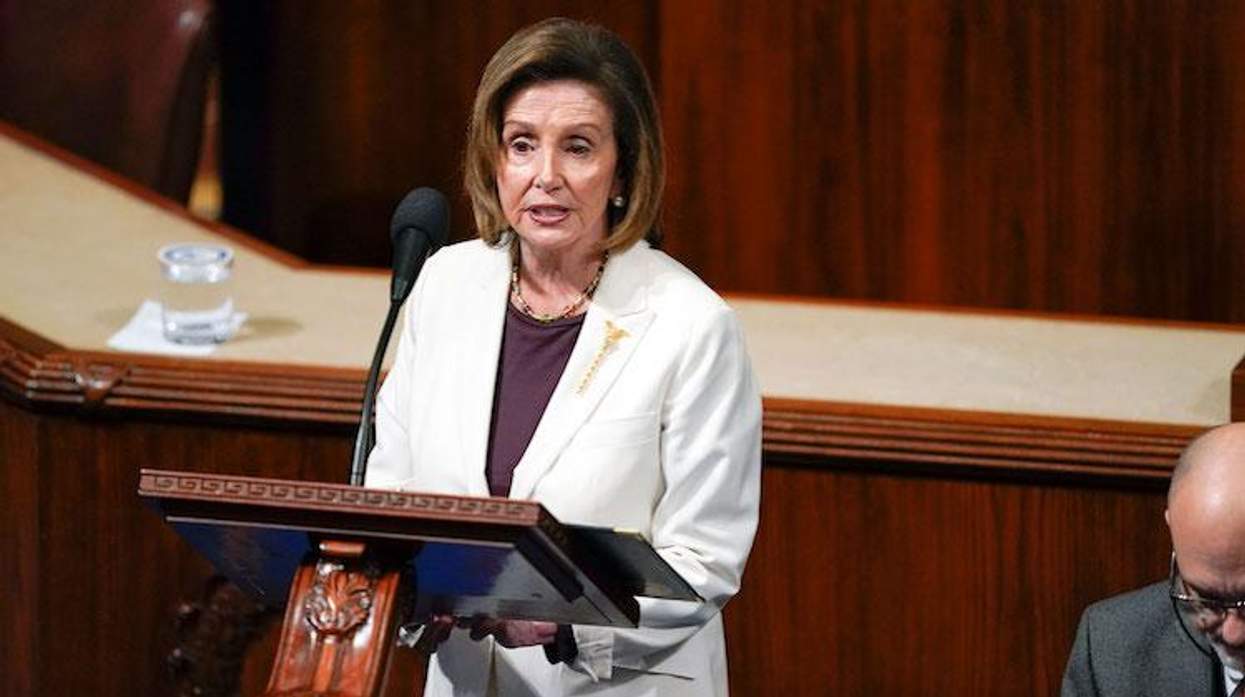(CNN) -- House Speaker Nancy Pelosi announced on Thursday that she will relinquish her leadership post, after leading House Democrats for two decades, building a legacy as one of the most powerful and polarizing figures in American politics.
Pelosi, the first and only woman to serve as speaker, said that she would continue to serve in the House, giving the next generation the opportunity to lead the House Democrats, who will be in the minority next year despite a better-than-expected midterm election performance.
"I will not seek reelection to Democratic leadership in the next Congress," said Pelosi in the House chamber. "For me, the hour has come for a new generation to lead the Democratic caucus that I so deeply respect, and I'm grateful that so many are ready and willing to shoulder this awesome responsibility."
Pelosi, 82, rose to the top of the House Democratic caucus in 2002, after leading many in her party against a resolution authorizing the use of force in Iraq. She then guided Democrats as they rode the waves of popular opinion, seeing their power swell to a 257-seat majority after the 2008 elections, ultimately crash to a 188-seat minority, and then rise once again.
Her political career was marked by an extraordinary ability to understand and overcome those political shifts, keeping conflicting factions of her party united in passing major legislation. She earned the Speaker's gavel twice -- after the 2006 and 2018 elections -- and lost it after the 2010 elections.
Of late, she has conducted a string of accomplishments with one of the slimmest party splits in history, passing a $1.9 trillion pandemic aid package last year and a $750 billion health care, energy and climate bill in August.
Her legislative victories in the Biden era cemented her reputation as one of the most successful party leaders in Congress. During the Obama administration, Pelosi was instrumental to the passage of the massive economic stimulus bill and the 2010 Affordable Care Act, which provides over 35 million Americans health care coverage.
'The wishes of my family and the wishes of my caucus'
The longtime Democratic leader told CNN's Dana Bash on "State of the Union" on Sunday that members of her caucus had asked her to "consider" running in the party's leadership elections at the end of the month, adding: "But, again, let's just get through the election."
Any decision to run again, Pelosi said, "is about family, and also my colleagues and what we want to do is go forward in a very unified way, as we go forward to prepare for the Congress at hand."
"Nonetheless, a great deal is at stake because we'll be in a presidential election. So my decision will again be rooted in the wishes of my family and the wishes of my caucus," she continued. "But none of it will be very much considered until we see what the outcome of all of this is. And there are all kinds of ways to exert influence."
Pelosi had told CNN's Anderson Cooper in an interview earlier this month that the violent attack on her husband in late October would have an impact on her decision making for her political future.
Paul Pelosi was attacked with a hammer at the couple's home in San Francisco by a male assailant, authorities have said. The assailant, according to court documents, had been searching for the speaker of the House.
A history-making legacy
Pelosi is a towering figure in American politics with a history-making legacy of shattering glass ceilings as the first and so far only woman to be speaker of the US House of Representatives.
She was first elected speaker in 2007 and served in the role until 2011, when Democrats lost control of the House. In 2019, she was again elected speaker after Democrats won back the House from Republicans.
A small, but vocal, faction of Democrats initially worked to derail Pelosi's bid to become the next speaker following the 2018 midterm elections, but she ultimately secured the votes needed to reclaim the title. Ahead of the final vote, Pelosi deployed her deal-making abilities and negotiated an agreement with some of the Democrats who had been lobbying to block her from the speakership. As part of the agreement, Pelosi backed a proposal to enact term limits for the party's top three leaders. The 2018 deal was an informal agreement, however, and caucus rules were never changed imposing any time limits on her tenure.
Pelosi was first elected to the House in 1987, when she won a special election to fill a seat representing California's 5th Congressional District. Over the years, she has earned a reputation as a powerful and formidable leader of House Democrats who has exerted significant influence and a tight grip over members of her caucus.
She has also been a fierce adversary to Republicans in Congress and in the White House, and Republicans have made her a high-profile target of criticism by their party.
When she was first elected speaker, Pelosi reflected on the significance of the event and what it meant for women in the United States.
"This is a historic moment," she said in a speech after accepting the speaker's gavel. "It's a historic moment for the Congress. It's a historic moment for the women of America."
This story has been updated with additional developments Thursday.
The-CNN-Wire
(tm) & (c) 2022 Cable News Network, Inc., a Warner Bros. Discovery Company. All rights reserved.
Related: Pelosi on SCOTUS, GOP Overturning Roe and What's Next for Them




































































Charlie Kirk DID say stoning gay people was the 'perfect law' — and these other heinous quotes